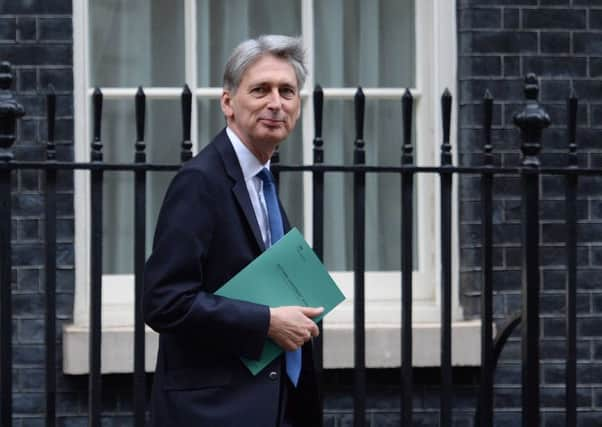Brexit: OECD revises forecasts upwards despite inflation warnings


The Organisation for Economic Cooperation and Development (OECD) raised its projections for Britain’s gross domestic product (GDP) from 1.8% to 2% for this year and from 1% to 1.2% for 2017.
It said the Bank of England’s moves to shore up the economy since the EU referendum result have boosted consumer confidence, but rising inflation would squeeze purchasing power, causing unemployment to rise as growth slows.
Advertisement
Hide AdAdvertisement
Hide AdIt also warned that while Britain is expecting to be handed the best trading terms with other countries post-2019, there is still “considerable uncertainty about this”.
“Monetary policy has mitigated the immediate impact of the shock by stabilising financial markets and shoring up consumer confidence,” the OECD said.
“This projection assumes the United Kingdom will operate with a most favoured nation status after 2019, but there is considerable uncertainty about this, which will increasingly weigh on growth, and in particular private investment, including foreign direct investment.
“Higher inflation is projected to hit households’ purchasing power and to reduce corporate margins, weakening private consumption and investment. As growth slows, the unemployment rate is projected to rise.”
Inflation is on course for a sharp jump next year following the Brexit vote, as sterling’s 18% slump against the US dollar and 11% drop versus the euro feeds its way through to consumer prices.
The Paris-based think tank previously warned in July that Britain’s decision to leave the EU could result in a 3% loss in GDP by the end of the decade and is likely to hit employment.
In its latest update for November, it said weaker growth would push up the UK’s unemployment rate to above 5%, but the current account deficit would “narrow gradually” as the Brexit-hit pound boosts exports.
Advertisement
Hide AdAdvertisement
Hide Ad“The unpredictability of the exit process from the European Union is a major downside risk for the economy,” the OECD added.
“Uncertainty could hamper domestic and foreign investment more than projected and the pass-through of currency depreciation to prices could be larger, deepening the extent of stagflation.”
On the global economy, the OECD said the world was still languishing in a “low-growth trap”.
It expects global growth to hit an unrevised 2.9% for this year, but has pushed up its projections for 2017 from 3.2% to 3.3%.